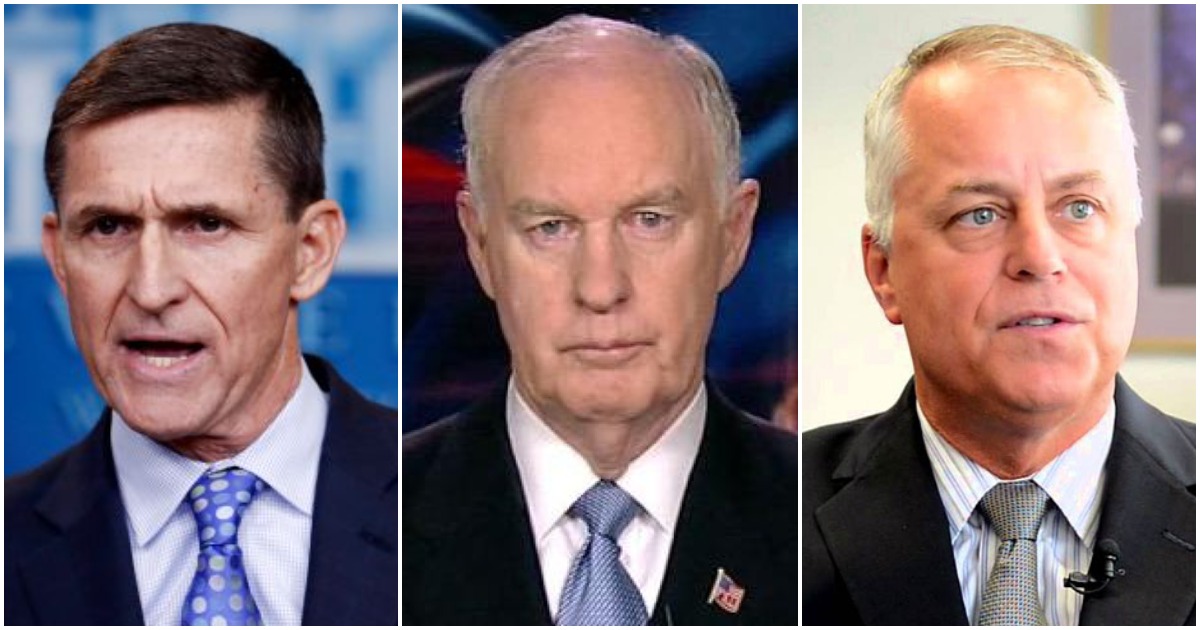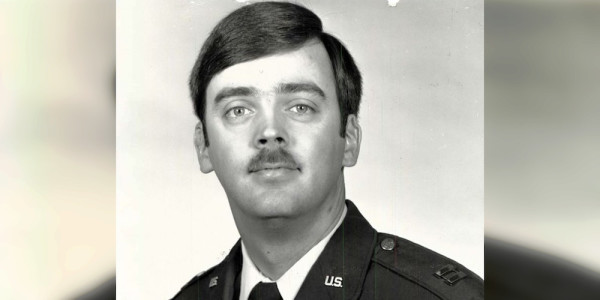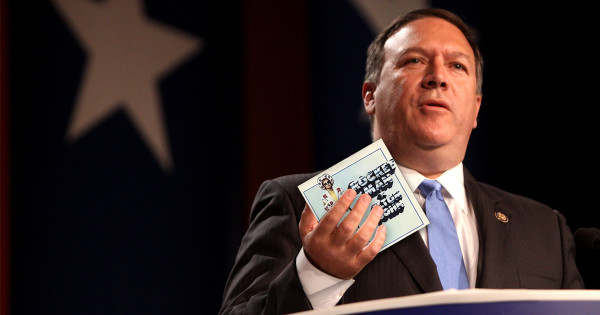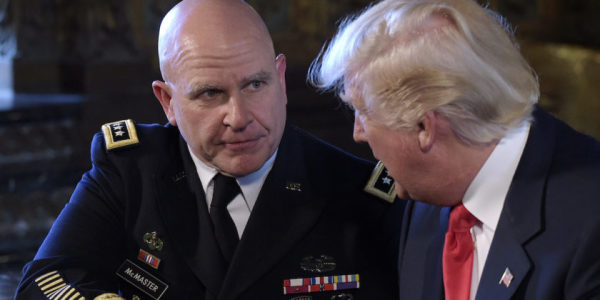Is there something in the water turning the brains of retired generals into mush?
On Monday, retired Air Force Lt. Gen. Thomas McInerney, a former fighter pilot and assistant vice chief of staff, touched off a firestorm of criticism after floating baseless claims that Army Special Forces soldiers were killed while seizing computer servers in Germany tied to fictional election fraud that had cost President Donald Trump a second term in office in the 2020 presidential election.
Speaking on the far-right WVW Broadcast Network, McInerney alleged that members of the 305th Military Intelligence Battalion were in fact ‘The Kraken’ designed to substantiate Trump’s baseless claims of election fraud, prompting the Army to issue an official statement batting down his claims as “false.”
Then, on Tuesday, recently-pardoned longtime conspiracy theorist retired Army Lt. Gen. Michael Flynn shared a press release from a fringe group calling on Trump to declare “a limited form of Martial Law, and temporarily suspend the Constitution and civilian control of these federal elections, for the sole purpose of having the military oversee a re-vote” in an effort to overturn the outcome of the election.
“Unfortunately, we are at the point where we can only trust our military to do this because our corrupt political class and courts have proven their inability to act fairly and within the law,” the organization said in its statement.
Perhaps we could wave aside these crazy claims as merely the ramblings of unserious people, but people continue to take these people seriously precisely because of their military service records and the stars on their shoulders. McInerney, who in 2006 floated an evidence-free theory that Russia moved Saddam’s weapons of mass destruction to Syria prior to the Iraq War, was near the top of the Air Force food chain before his retirement. And Flynn, the former head of the Defense Intelligence Agency and trusted confidant to the President of the United States, now appears on fringe conspiracy radio call-in shows and offers support for a movement that thinks the government is run by Satan-worshipping pedophiles.
It’s the general officer equivalent of watching the changing faces of meth users over time, except now we’re watching once-respected officers flush their credibility down the toilet.
Indeed, Flynn and McInerney’s double-barreled shotgun blast of insanity this week may mark a new high in the annals of retired generals and their descent into the fever swamps of internet conspiracy theories, but they aren’t the only ones to float unhinged pro-Trump narratives in recent years.
Consider Anthony Tata, currently acting undersecretary of defense for policy, the Pentagon’s top policy job, who once falsely claimed that President Barack Obama was a Muslim and a “terrorist leader” with “Islamic roots,” as Business Insider reports.
For Tata, there is “an extensive record of his making crazy comments that reveal he is better suited to run a QAnon bulletin board than the Pentagon’s policy shop,” as Max Boot recently wrote in The Washington Post.
Between Flynn, Tata, and McInerney, one has to wonder: what is it about rising to the rank of general that clearly ruins the brains of (we assume) once-fine men? They’ve all been promoted to tremendous positions of responsibility within the executive branch at some point in their careers, so why the apparent mental rot?
To be fair, it’s not as if the U.S. military doesn’t have a long, lustrous tradition of batshit insane general officers rising in the ranks. Air Force Gen. Curtis LeMay infamously attempted to goad President John F. Kennedy into bombing Cuba during the titular missile crisis. And Gen. Thomas Power, who even LeMay considered “a sadist,” once argued for limited nuclear strikes by proclaiming, “Why are you so concerned with saving their lives? The whole idea is to kill the bastards.”
But egregious belligerency aside, the embrace of outright conspiracy theories is deeply alarming, especially given the prominence with which retired generals are held in American civil society — at least, when they do things that are in the service of the status quo, like speaking out in defense of civil-military relations.
Luckily, there’s a relatively easy solution to the problem of insane conspiracy-mindedness among America’s top generals: instead of letting them continue speaking and worrying about what comes out of their mouth, it would be wise to generally not listen. As Carl Forsling previously noted for Task & Purpose, the era of senior military officials as cable news pundits needs to come to a close for everyone’s sake.
“It’s not about knowledge, but about the immense and disproportionate esteem the American public invests in the military,” Forsling wrote. “They extend that same excessive adulation to retired senior leaders. If the military is full of heroes, then the leaders of those heroes must have some kind of superhuman wisdom. Politicians in particular love to leverage that built-in credibility.”
If Flynn, Tata, and McInerney are proof of anything, it’s that the number of stars on your shoulders aren’t immediately proportional to your intelligence — in their case, far from it. But more importantly, it’s a lesson about America’s obsession with military expertise in the form of rank and responsibility rather than real-world wisdom and experience.
Tom Ricks, author of The Generals: American Military Command from World War II to Today, put it best: “I think the Peter Principle may be at play here — these are men who rose to above their level of competence. Mushiness was present well before retirement.”
















